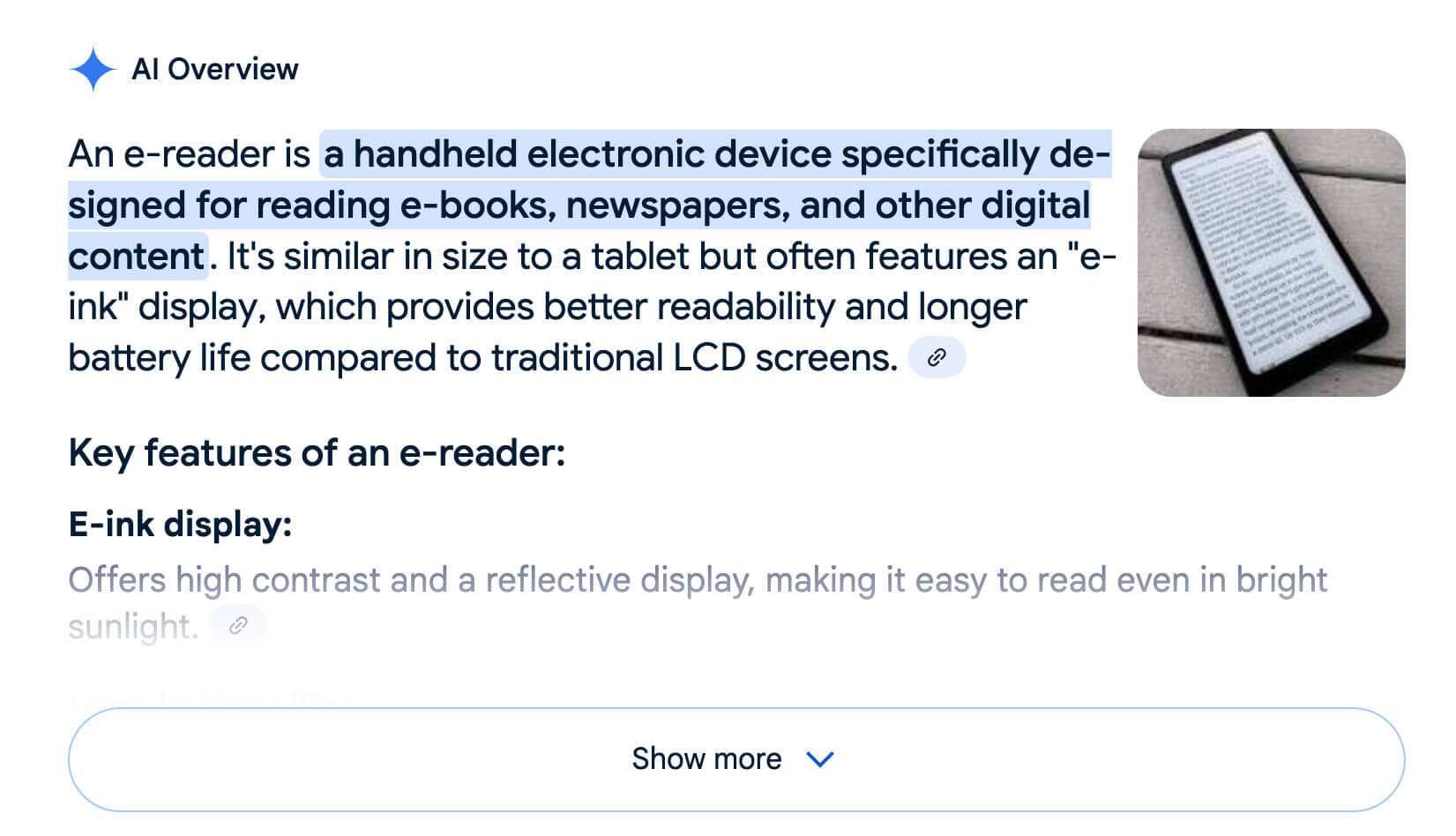If you have searched for anything on Google in the past couple of months, you might have noticed the AI search results. At the very top of the page, in concise bullet points, are answers to most of the queries. This is, above all, the sites themselves. If you search for a review of a product, topical news, or a cancellation policy, Google AI is where many people find answers. This is hindering the amount of web traffic that flows to traditional news companies, such as The Guardian, The New York Times, or The Washington Post. Tech sites such as The Verge, Engadget, and Good e-Reader are also suffering.
Google first launched AI overviews in May 2024. It provides concise, AI-generated summaries at the top of search results, offering quick answers to user queries. These overviews aim to provide users with immediate information and streamline the search process, potentially reducing the need to click through multiple links. At Google I/O, the company announced that they have launched AI Overviews in more than 200 countries and territories, and over 40 languages, with support added for Arabic, Chinese, Malay, Urdu, and more.
Many of the people who use AI Overviews stop reading after skimming the top third of an AI-generated answer – the median scroll depth is just 30%. That’s one of many insights from a new UX study conducted by Kevin Indig and Eric van Buskirk. AI Overview citations get few clicks: Just 19% of mobile searchers and 7.4% of desktop searchers clicked on a citation. There are far fewer people who take the time to visit a website with more information. When users leave the AI Overviews, a third go to Reddit, YouTube, or forums.
AI Overviews hamper the number of people who used to find news publications and news organizations at the top of the traditional search results. Multiple studies have shown that the presence of an AI Overview in search results significantly lowers the CTR (click-through rate) for conventional organic listings. Ahrefs’ study found a 34.5% drop in CTR for top-ranking pages when an AI Overview was present. According to Forbes, roughly 60% of searches now yield no clicks at all, as AI-generated answers satisfy them directly on the search results page.
Wrap Up
Many of the Google AI Overviews facilitate “zero-click” searches, where users find answers directly on the search page without needing to visit external websites. This changes how users interact with search results and reduces the incentive to click through to individual sources. This situation is similar to how YouTube has evolved over time, where Google prioritizes short-form content over long-form content.
Google AI Overviews, YouTube Shorts, and the decline in reading speak to our lower attention spans.
Michael Kozlowski is the editor-in-chief at Good e-Reader and has written about audiobooks and e-readers for the past fifteen years. Newspapers and websites such as the CBC, CNET, Engadget, Huffington Post and the New York Times have picked up his articles. He Lives in Vancouver, British Columbia, Canada.

